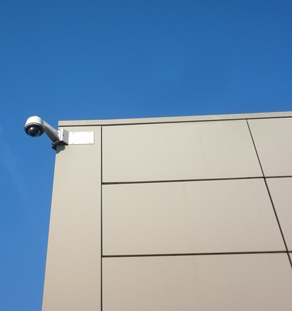Salford University has shown compliance with the surveillance camera code of practice. The Surveillance Camera Commissioner’s (SSC) third party certification scheme enables organisations to show they comply with the surveillance camera code of practice. For relevant authorities (such as local authorities and police forces) this is particularly important, the SSC says, as they must show due regard to the code. For others, such as businesses, compliance with the code is voluntary.
Salford University have recently achieved step two certification. They’re not an organisation that is legally required to comply with the code. Trevor Jones, Head of Security at Salford University, said: “The university believes that following the code is nationally recognised as best practice for CCTV operations. Applying for and attaining the Commissioner’s certificate, and being able to use the certification mark, demonstrates to our students, staff and visitors that we operate CCTV to the best standards possible.
For many young people, going to university or college is probably their first experience of living away from home. Many probably don’t give much thought to their safety or who’s looking after them. Do they securely lock their laptops, smart phones and tablets away? Are their doors and windows secure, is the campus safe and who can they call in an emergency? For many parents, their children’s safety is almost certainly at the forefront of their minds.
Jones, the vice-chairman of the university security managers’ association Aucso, said: “Achieving certification against the code shows to potential students and their families that the university takes their safety and security extremely seriously – to be recognised by the Surveillance Camera Commissioner as an organisation that reaches the highest standards is a powerful statement.
Three security industry certification bodies are qualified to audit against the code of practice – the SSAIB, NSI and IQ Verify. There are two steps to certification: first, desktop certification, is aimed at organisations that are working hard to achieve full compliance with the code but are aware that they may need more time to become fully compliant. The second step, full certification, is for those CCTV users that are close to or fully compliant with the code. Salford are certified against step two.
Jones said: “We already had BS7958 (the British standard for control rooms) in place as well as all the relevant governance and documentation, so the process was very easy for us. Though I imagine if you don’t have BS7958 the process will still be relatively easy. If you run a good system and control room you should meet all the requirements.”
Salford invited an auditor into their CCTV control room to audit their system, cameras and procedures, working with a checklist against the 12 guiding principles in the code. The audit took place over a day. Jones said: “I would certainly recommend the certification scheme to other universities – in fact I think it should be mandatory! It’s excellent value for money too simply because of the huge reputational value it offers.”










